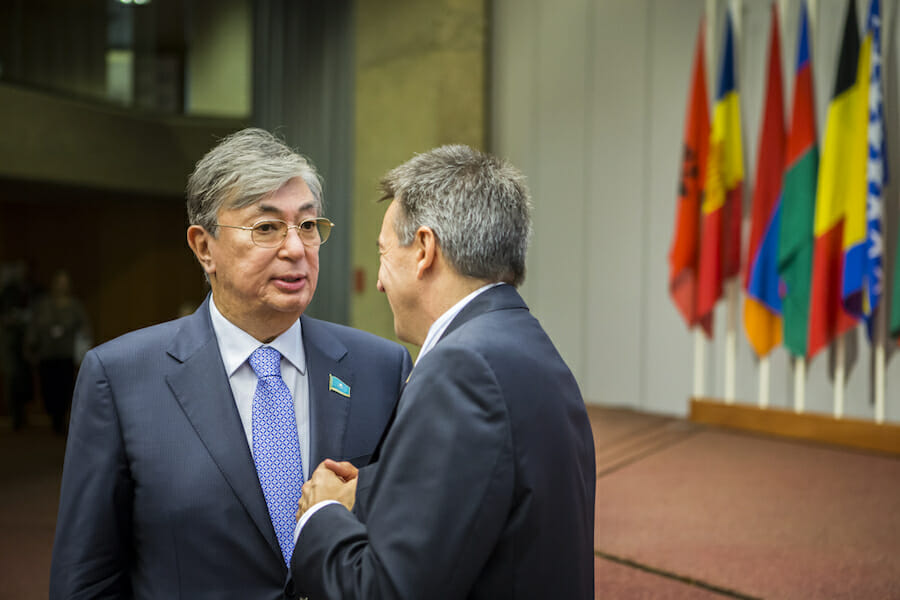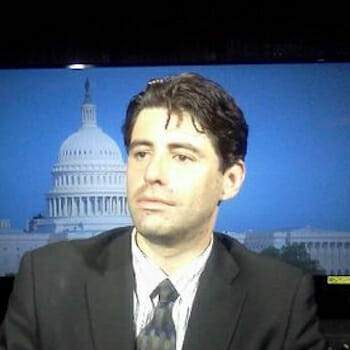
After the Elections, Here are Kazakhstani President Tokayev’s Priorities
In a late June interview, President Kassym-Jomart Tokayev stated that “I never forget that I am the president of this country.” The June 9 elections in Kazakhstan, where he obtained 70% of the vote, are now ancient history and the new president of the Central Asian nation is looking forward, and given recent tragic developments, that is where his focus should be.
Arys, a first test of leadership
Even though the elections were less than a month ago, there have already been tragic incidents in which wise leadership is necessary. Specifically, a major priority for Nur-Sultan is the situation in Arys, a town in southeastern Kazakhstan, where a military ammunition’s depot exploded on June 24. It is not yet clear the cause of this incident – though similar accidents have occurred in the past, including in that same area in 2009 and in Russia that same year – nor how many military personnel may have lost their lives at the base. What we do know is that the local government declared a state of emergency, which prompted the evacuation of some 44 thousand residents of Arys to prevent further loss of life.
President Tokayev reportedly visited the area that very June 24 after the explosions were reported (amateur footage of the explosions has quickly gone viral), a commendably quick response. Thus, Arys will be his first major domestic test in which he must demonstrate leadership and foresight to rally the government and general population in order to help tens of thousands of Kazakhstanis in need and to ensure that the causes of the explosions are properly investigated.
Helping Kazakhstanis, not Kazakhstani banks
Regarding the country’s economy, President Tokayev took the reins of a country that is in an acceptable financial situation, which should make his presidency generally easier, or at least less-challenging than in neighboring regional countries that face harsher economic realities.
For example, Reuters reported that “oil output at Kazakhstan’s Kashagan field reached an all-time high of 400,000 barrels per day” on Tuesday, June 4. Even more, JSC National Atomic Company “Kazatomprom,” Nur-Sultan’s crown jewel as it is one of the major producers of uranium in the world, “announced a landmark fuel supply agreement with Spanish Nuclear Utility, ENUSA,” this past May, which “marks the first commercial arrangement between Kazatomprom and ENUSA, and it follows on first-time agreements signed in 2018 between Kazatomprom and newly acquired customers in Sweden and Brazil.” Moreover, Nur-Sultan has been successful at improving with extra-regional partners: in 2018 trade with India reached $1.2 billion, a new milestone; while trade with South Korea reached $3.9 billion. As for trade between Washington and Nur-Sultan, according to the U.S. Trade Representative, it reached $2.1 billion, not a large number by U.S. standards but significant nonetheless.
In order to make sure that these deals and the state’s growing coffers directly help Kazakhastanis, President Tokayev announced in late June that he will cancel bad loans “held by a sixth of the central Asian country’s population while signaling a sharp change in policy to end costly state bailouts of private banks.” The idea is that Kazakhastani citizens are directly and positively affected by the government, not financial institutions. The total debt relief package will be “a bit less than $1 billion,” the president stated. The country’s financial stability permits this sort of large social assistance program, and it will be an important boost that will help improve the finances of Kazakhastani citizens who were affected by mischievous bank deals.
The president has similarly pledged to improve the country’s health system, namely by addressing the “shortage of specialists, expand[ing] access to medical aid, bring[ing] mobile doctors to remote areas and [digitizing] the system.” As part of these overall objectives, the Turkish YDA Holding and state officials will build a 500-bed hospital in Petropavlovsk while a second hospital will be built in Turkestan, under the umbrella of a public-private partnership. The issue of improving Kazakhstan’s healthcare system was also discussed during a meeting between Foreign Affairs Minister Beibut Atamkulov with Trevor Gunn, Vice President of Medtronic, as part of the former’s tour to the U.S. in late June-early July.
It will be important for Nur-Sultan to take into consideration the OECD’s recommendations, such as increasing screening rates and addressing health registration issues as “one-fifth of the population is not registered with any primary care provider,” the 2018 OECD review of Kazakhstan’s health system explains.
Foreign Policy in the Horizon
President Tokayev’s first gathering with foreign leaders occurred in mid-June in Kyrgyzstan, as he attended the summit of the Shanghai Cooperation Organization. Tokayev is no stranger to foreign policy as he already served as foreign affairs minister twice, and he has already met with regional leaders, like the presidents of Russia and Uzbekistan. While no groundbreaking declaration came out of the meeting as U.S.-Iran tensions received the most attention, at the very least Kazakhstan’s fellow SCO members – which include China and Russia – can rest assured that Tokayev will not be a source of anarchy in Central Asia. Minister Atamkulov took a similar message of stability to Washington when he met with Secretary of State Mike Pompeo on July 2.
The Central Asian state gets along quite well with its neighbors, particularly Uzbekistan since President Shavkat Mirziyoyev came to power in 2016. Relations with Kazakhstan’s fellow Caspian Sea states are also acceptable and will hopefully continue to improve after a 2018 agreement that may be the first step towards the end of the Caspian Sea dispute – the agreement, anecdotally, was signed in Aktau, Kazakhstan. Nur-Sultan also hosted a summit of the Eurasian Economic Union in late May, which concluded with up to 25 agreements being signed by the attending heads of state; it will be interesting to see if this bloc can regain its lost momentum. The Kazakhstani government has even tried to become a peace mediator; for example, in April it hosted a new round of the Syrian peace talks, though it is unlikely that they will be successful given the complexity of that conflict.
One noteworthy fact about the SCO summit was that, according to the Caspian Policy Center, “President Tokayev advocated for the Astana International Financial Centre to support the financial systems of SCO member countries in order to help the organization’s members reach their true economic potential, as well as brought up the importance of Kazakhstan’s initiative to form a Global Antiterrorist Coalition under United Nations auspices.” It will be interesting to see if the AIFC can strengthen its ties with SCO members, which already exists, particularly with China. At the very least, it is noteworthy that Tokayev maintains his interest in the AIFC.
The Xinjiang Problem and other concerns
Without a doubt, there are challenges that President Tokayev will have to deal with. An obvious ongoing concern is the situation of ethnic Kazakhs in Xinjiang, as thousands of them have been detained in Beijing’s nefarious “education camps.”
More pressing domestic issues were protests and major arrests during the June 9 elections and June 12 presidential inauguration, however, the situation seems to be calm again. A new source of instability is violence in the country’s vital Tengiz oil field, between Kazakhastani and foreign workers.
Kazakhstan is a vastly heterogeneous state, given its ethnically diverse population – some 100 ethnic groups, according to the Kazakhstani embassy in the U.S. – in addition to many foreign workers, particularly Uzbeks, that are working in said country. The Central Asian country has managed to co-exist quite peacefully since independence was achieved back in 1991, the tragic 2011 and 2016 attacks notwithstanding. Hence Tokayev must continue to maintain internal stability, which includes addressing the causes of the recent protests.
Final Thoughts
President Kassym-Jomart Tokayev’s electoral victory on June 9 has completed Kazakhstan’s transition of power, and the Central Asian country now has a head of state whose last name is not Nazarbayev for the first time since gaining independence from the Soviet Union, though the former leader will nonetheless remain an influential figure.
Kazakhstan’s recent elections were a historic occasion for the Central Asian state, and now the Tokayev administration must maintain stability, tolerance, and openness at the domestic level while continuing its ambitious, yet non-aggressive, foreign policy. The government’s response to the recent tragedy in Arys, the fulfilling the pledge to erase the debts of a sixth of 18 million Kazakhstanis (roughly three million individuals in total), improving the health care system, and listening to opposition voices are four tasks that President Tokayev must address with equal importance.
The views expressed in this article are those of the author alone and do not necessarily reflect those of any institutions with which the author is associated.
